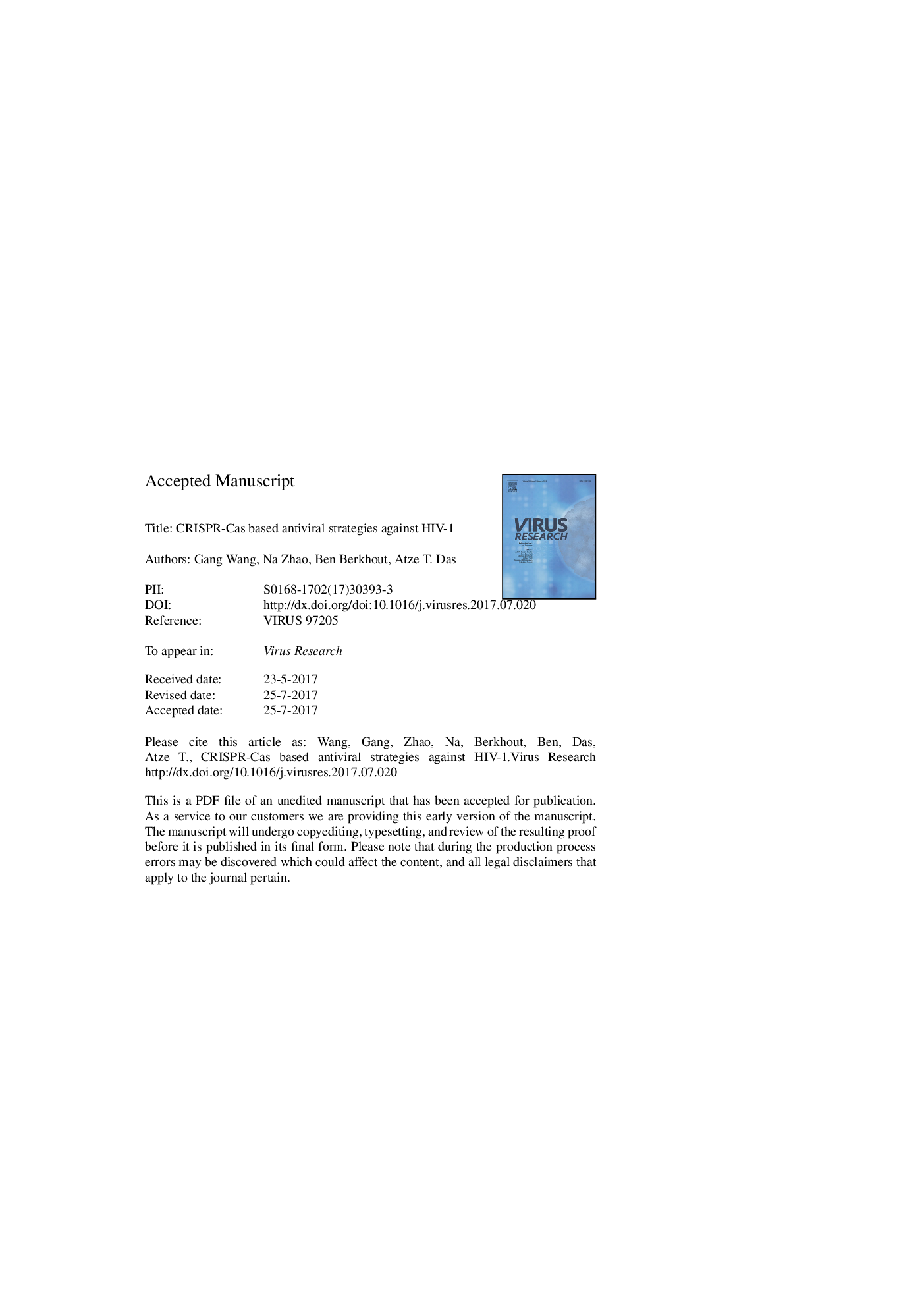| Article ID | Journal | Published Year | Pages | File Type |
|---|---|---|---|---|
| 8751951 | Virus Research | 2018 | 35 Pages |
Abstract
In bacteria and archaea, the clustered regularly interspaced short palindromic repeats (CRISPR) and associated proteins (Cas) confer adaptive immunity against exogenous DNA elements. This CRISPR-Cas system has been turned into an effective tool for editing of eukaryotic DNA genomes. Pathogenic viruses that have a double-stranded DNA (dsDNA) genome or that replicate through a dsDNA intermediate can also be targeted with this DNA editing tool. Here, we review how CRISPR-Cas was used in novel therapeutic approaches against the human immunodeficiency virus type-1 (HIV-1), focusing on approaches that aim to permanently inactivate all virus genomes or to prevent viral persistence in latent reservoirs.
Related Topics
Life Sciences
Immunology and Microbiology
Virology
Authors
Gang Wang, Na Zhao, Ben Berkhout, Atze T. Das,
